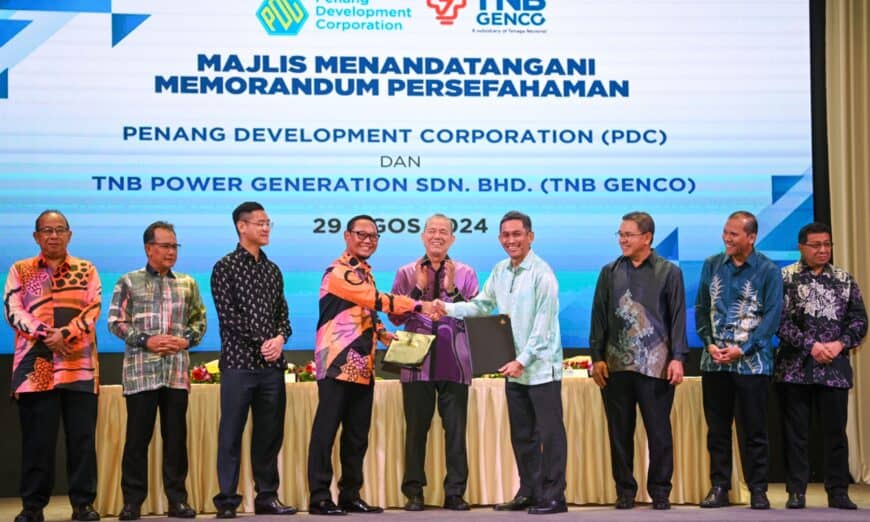THE Penang Development Corporation (PDC) has signed a Memorandum of Understanding (MoU) with Tenaga Nasional Berhad Power Generation (TNB Genco) to form a strategic partnership for the redevelopment of Gelugor Power Station (SJ).
TNB Genco, a subsidiary of Tenaga Nasional Bhd (TNB), will collaborate with PDC, a development agency under the Penang government. PDC’s core focus areas included industrial park and township development, urban redevelopment, housing, and investment initiatives.
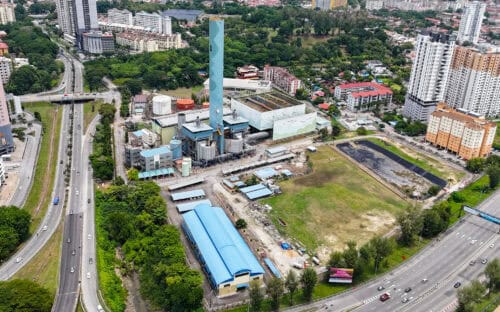
The MoU signing ceremony was held at the Eastern & Oriental (E&O) Hotel yesterday (Aug 29). PDC was represented by its chief executive officer Datuk Aziz Bakar while TNB Genco was represented by its managing director Muhamad Nazri Pazil.
The MoU signing ceremony was witnessed by several prominent figures, including Deputy Prime Minister Datuk Seri Fadillah Yusof, who is also Energy Transition and Water Transformation (PETRA) Minister, Penang Infrastructure, Transport and Digital Committee chairman Zairil Khir Johari, PETRA secretary-general Datuk Mad Zaidi Mohd Karli, Penang State Secretary Datuk Rosli Isa and TNB president and chief executive officer Datuk Megat Jalaluddin Megat Hassan.
Aziz said the MoU marks the start of the implementation of a feasibility study for a potential joint venture in the development of the Aeroderivative Gas Turbine (AGT) and Battery Energy Storage System (BESS) at the Gelugor SJ.
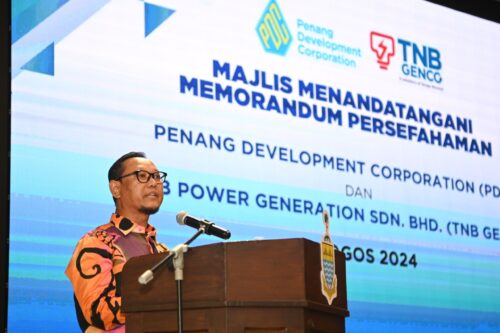
“The Gelugor power station has been operating for over 20 years and continues to reliably meet electricity demand in Penang.
“With a generation capacity of 330 megawatts (MW), the station supplies about 40 per cent of Penang’s current electricity demand, with the remainder coming from grid connections on the mainland.
“Penang, often referred to as Malaysia’s Silicon Valley, is home to numerous heavy industries and microchip factories that are currently operational and set to open soon.
“These industries are highly sensitive to voltage dips, which can negatively impact them. Thus, with this MoU, we can ensure a stable electricity supply to Penang, especially on the island,” he said.
Muhamad Nazri highlighted that once the Gelugor power station ceases operations by the end of the year, Penang will be fully reliant on electricity supplied through the cross-sea grid. This dependence poses risks without generation plants on the island to act as a UPS (uninterruptible power supply) to mitigate voltage dips.
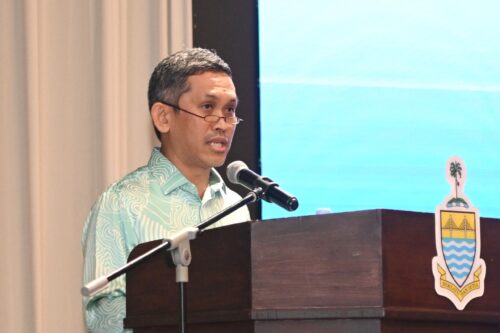
“Thus, TNB Genco and PDC plan to revitalise the site by proposing the installation of Aeroderivative Gas Turbines (hydrogen ready) and BESS.
“Once completed, this plant will be among the most modern of its kind, featuring environmentally friendly features and technologies and a design that complements its surroundings.
“This project will also bring cost savings thanks to existing infrastructure such as gas pipelines and transmission lines,” he explained.
He explained that the project implementation plan is expected to be completed in two phases.
The first phase will involve the installation of Aeroderivative units with a capacity of 300MW and BESS with a capacity of 200MWh on a nine-acre vacant land, subject to the feasibility study’s results.
The second phase will focus on accommodating 900 MW of BESS on the remaining site.
“The Aero–BESS feasibility study, initiated by the MoU signing, is expected to be finalised within 12 months,” said Muhamad Nazri.
Fadillah also congratulated TNB Genco and PDC on their MoU signing, emphasising the importance of exploring green energy-based power generation in Penang, specifically at the Gelugor power plant.
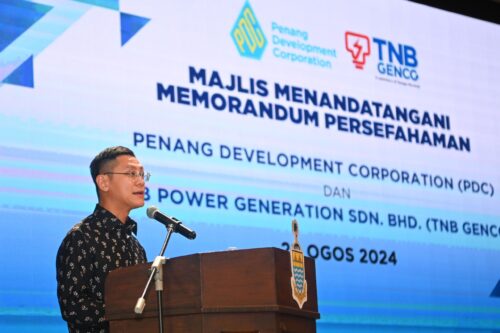
Zairil also hailed the collaboration as historic and significant for the state, expressing hope that the redevelopment project will proceed smoothly.
Also present during the MoU signing ceremony was state Trade, Entrepreneurial Development and Rural Development Committee chairman Datuk Rashidi Zinol.
Story by Riadz Akmal
Pix by Siew Chia En

